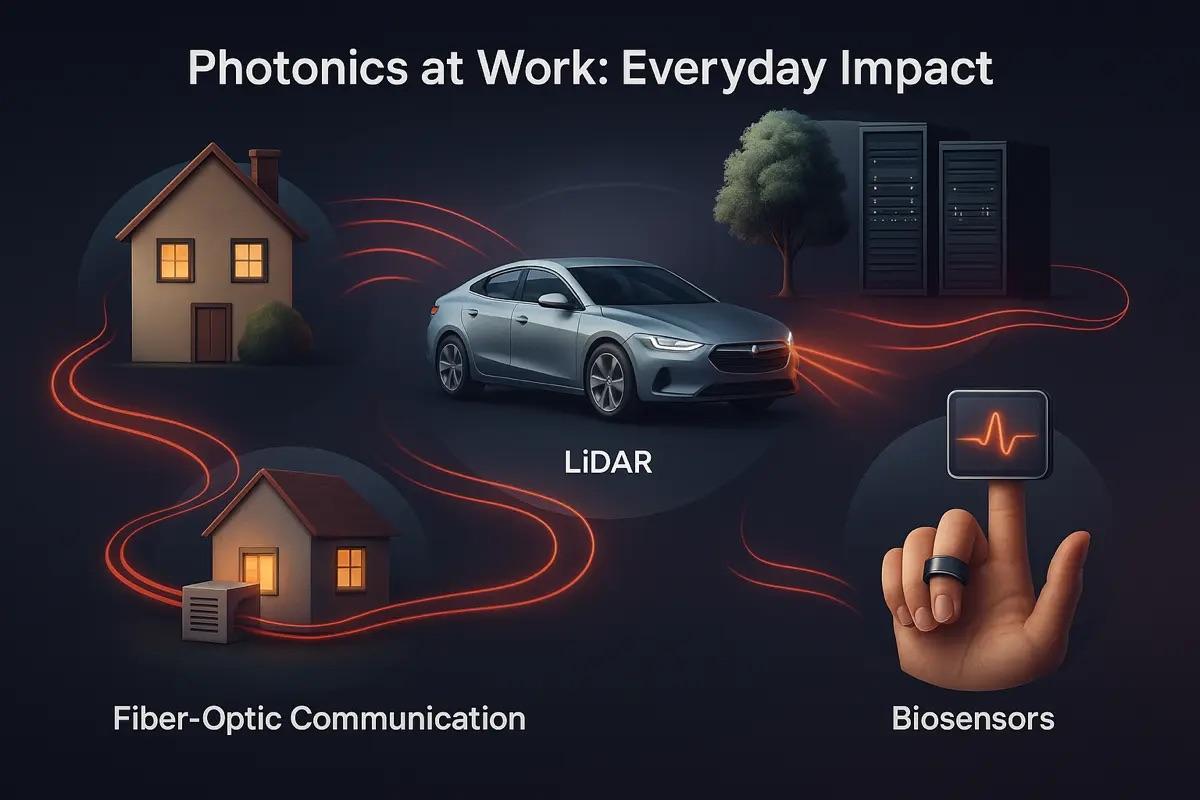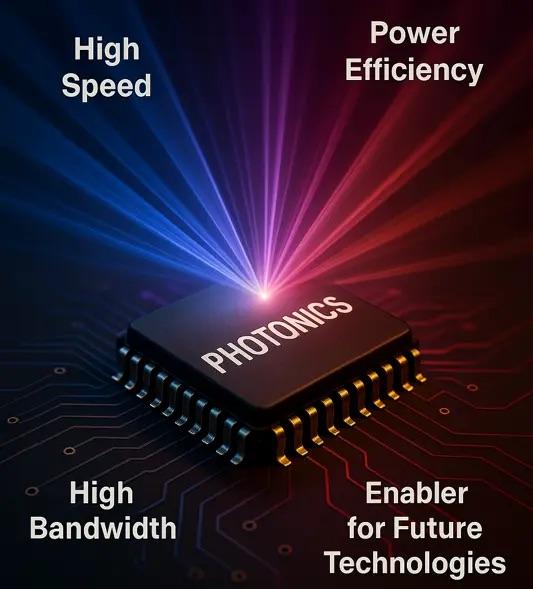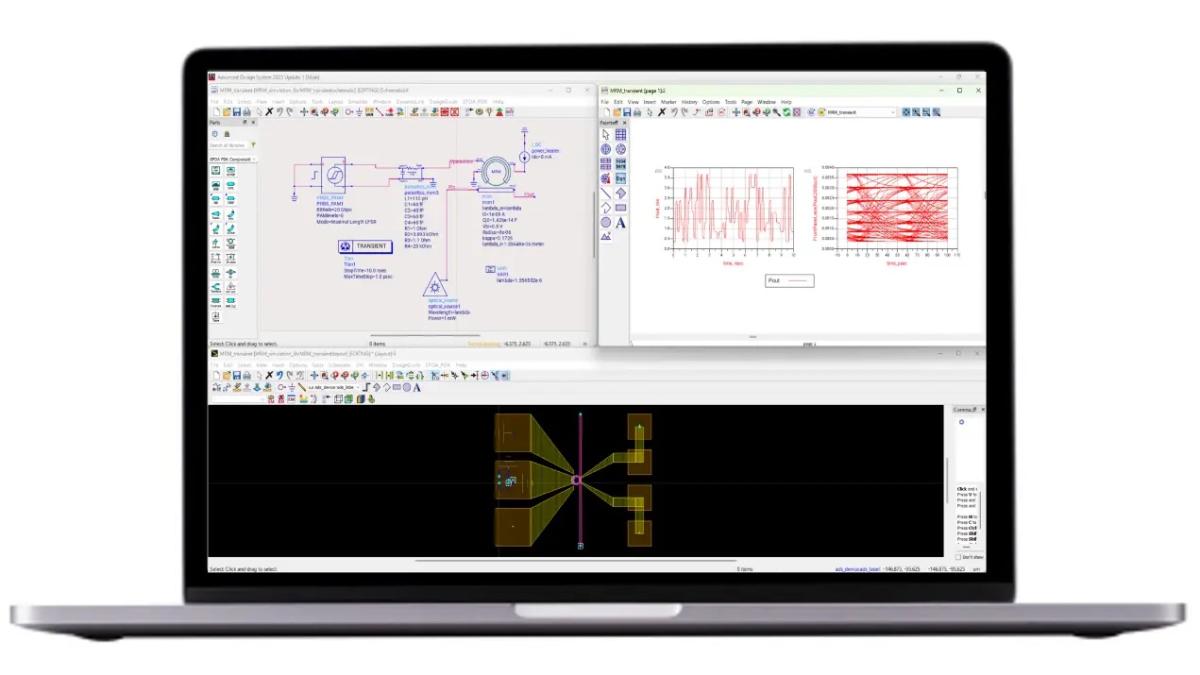Why the Future Belongs to Photonics—and How To Be Part of It
By Roberto Piacentini Filho Director, Product Marketing – Design Engineering Software
Photonics is revolutionizing how we transmit, process, and sense information. From powering ultra-fast internet to enabling breakthroughs in quantum computing and autonomous vehicles, photonics is the engine behind the next wave of innovation.
But what exactly is photonics—and why is it becoming so vital to the future of technology?
What is Photonics?
Photonics is the science and technology of using light (photons) to perform functions traditionally handled by electrons. While electronics use electrical signals to carry and process data, photonics leverages light—enabling significantly faster speeds, greater bandwidth, and lower energy consumption.
Chances are that photonics is already part of your daily life:
- Fiber-optic networks deliver high-speed internet to your home.
- LiDAR sensors help autonomous vehicles "see" their surroundings.
- Optical biosensors detect diseases at early stages.
- Inside data centers, photonic interconnects are replacing copper wires to keep up with our growing digital demands.
Why Is Photonics Gaining Momentum?
As the limits of Moore’s Law approach and electronic systems face power and speed constraints, photonics offers a compelling path forward. Here’s why:
- Speed: Light moves faster than electrons, enabling ultra-fast data transmission.
- Bandwidth: Optical channels can carry vastly more data than electrical ones.
- Energy Efficiency: Photonic systems consume less power and generate less heat.
- Miniaturization: Integrated photonics allows complex optical functions to be built on a chip, just like in electronics.
These benefits are pushing photonics into cutting-edge domains like 6G communications, AI accelerators, quantum photonics, and advanced biomedical devices.
The Challenge: Designing Photonic Systems
Despite its advantages, photonic design presents unique challenges. Unlike electronic circuits, photonic components rely on wave-based physics and require precise modeling of waveguides, resonators, modulators, detectors, and more. Moreover, photonics is often tightly integrated with electronics—adding another layer of design complexity.
Traditional Electronic Design Automation (EDA) tools weren’t built for this. Photonic design demands specialized software capable of simulating optical behavior, material dispersion, and electromagnetic interactions at the nanoscale.
Meet Keysight Photonic Designer
Keysight Photonic Designer is a next-generation design platform tailored for the unique needs of photonic integrated circuit (PIC) engineers. Whether you're developing a silicon photonics transceiver, a biomedical sensor, or a quantum photonic chip, Photonic Designer empowers you to:
- Model and simulate photonic components and circuits with exceptional accuracy.
- Co-design photonic and electronic systems in a unified environment.
- Optimize performance using advanced simulation engines and layout-aware design tools.
- Verify Layouts leveraging foundry PDKs for real-world fabrication success.
- Accelerate time-to-market with a streamlined workflow from schematic to tape-out.
It bridges the gap between optical and electronic design, helping engineers overcome complexity and bring their innovations to life faster.
Why This Matters Now
Photonics isn’t just on the horizon—it’s already reshaping industries. As demand for speed, efficiency, and bandwidth continues to skyrocket, companies that can design and verify photonic systems effectively will lead the next technological era.
Keysight Photonic Designer gives you the confidence to innovate with precision, speed, and scale—all within a single, powerful platform, Advanced Design System (ADS).





